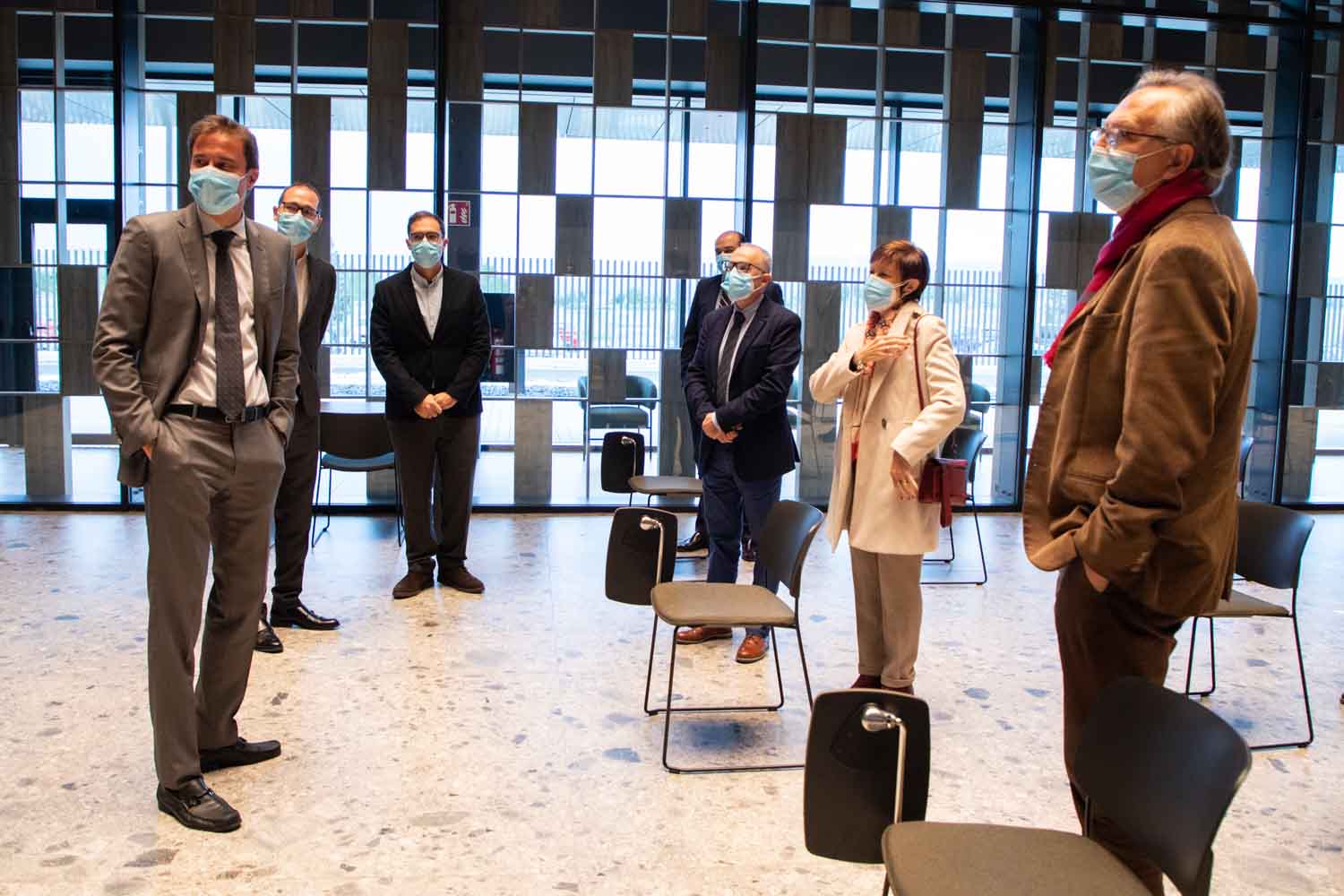The Universitat de València and Power Electronics reinforce their collaboration
- Office of the Principal
- December 9th, 2020
A delegation from the Universitat de València, led by the principal M. Vicenta Mestre, has visited the facilities of Power Electronics, a collaborating company on the first world master's degree in Energy Transformation (MPOWER).
Within the framework of the agreement signed between the UV and Power Electronics to create the own UV MPOWER master's degree, a free postgraduate degree financed by Power Electronics, members of the UV executive council (principal M.ª Vicente Climent, the studies vice-principal Isabel Vázquez and general manager Juan Vicente Climent), as well as the director of the ETSE, Paula Marzal; the deputy director of the school, José Torres, and the director of the Institute of Molecular Science (ICMOL), Eugenio Coronado, have visited the facilities where part of this blended-learning master's degree is carried out. They have been welcomed by some members of the already mentioned company (the CEO David Salvo, the director of Corporate University, Javier Tomás, and chemical engineer Carlos Regalado).
As it was highlighted at the agreement's signing ceremony, MPOWER is the only master's degree in renewable energies, power electronics and sustainable mobility in the world. The postgraduate degree aims to bring the company's labour situation closer to recent graduates by means of offering practical subjects and job opportunities at the end of the master's degree. In this sense, the director of the Academic Area of Power Electronics, Javier Tomás, has emphasised that "the master's degree is designed to ensure a one hundred per cent labour insertion, and that is why we choose the students carefully, who we finance in full, so that they remain with us and join the company."
At the presentation, David Salvo has wanted to highlight how the collaboration between the Universitat de València and the company gives substance to "the necessary collaboration between the university and the company". Just as it has been pointed out by Mestre, "it is essential to build company-university interrelationships, dynamics and synergies that redound to a better training, a better labour connection and the best possible employability."
File in: Visites oficials , Escola Tècnica Superior d'Enginyeria , Alumni , Màster propi

















